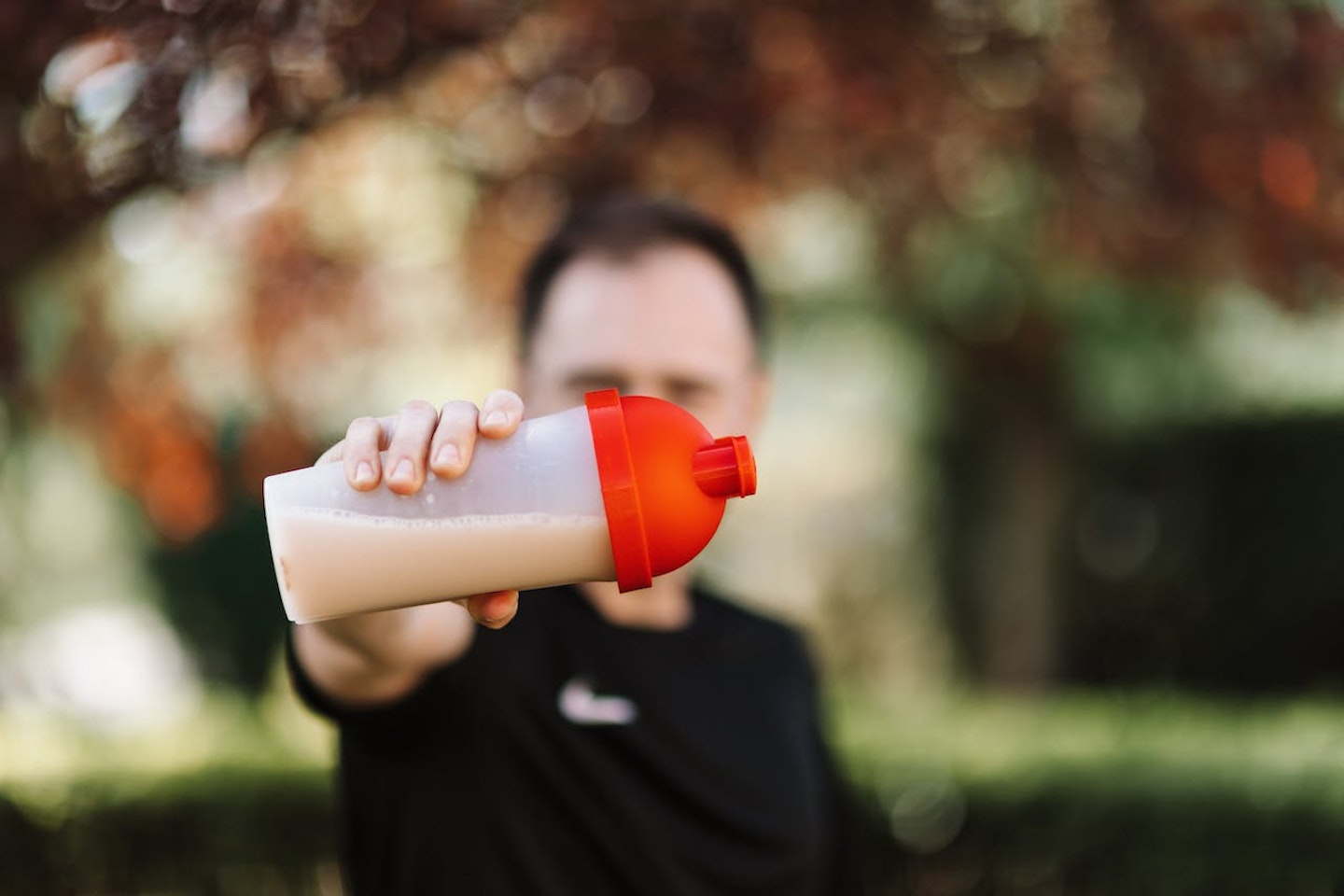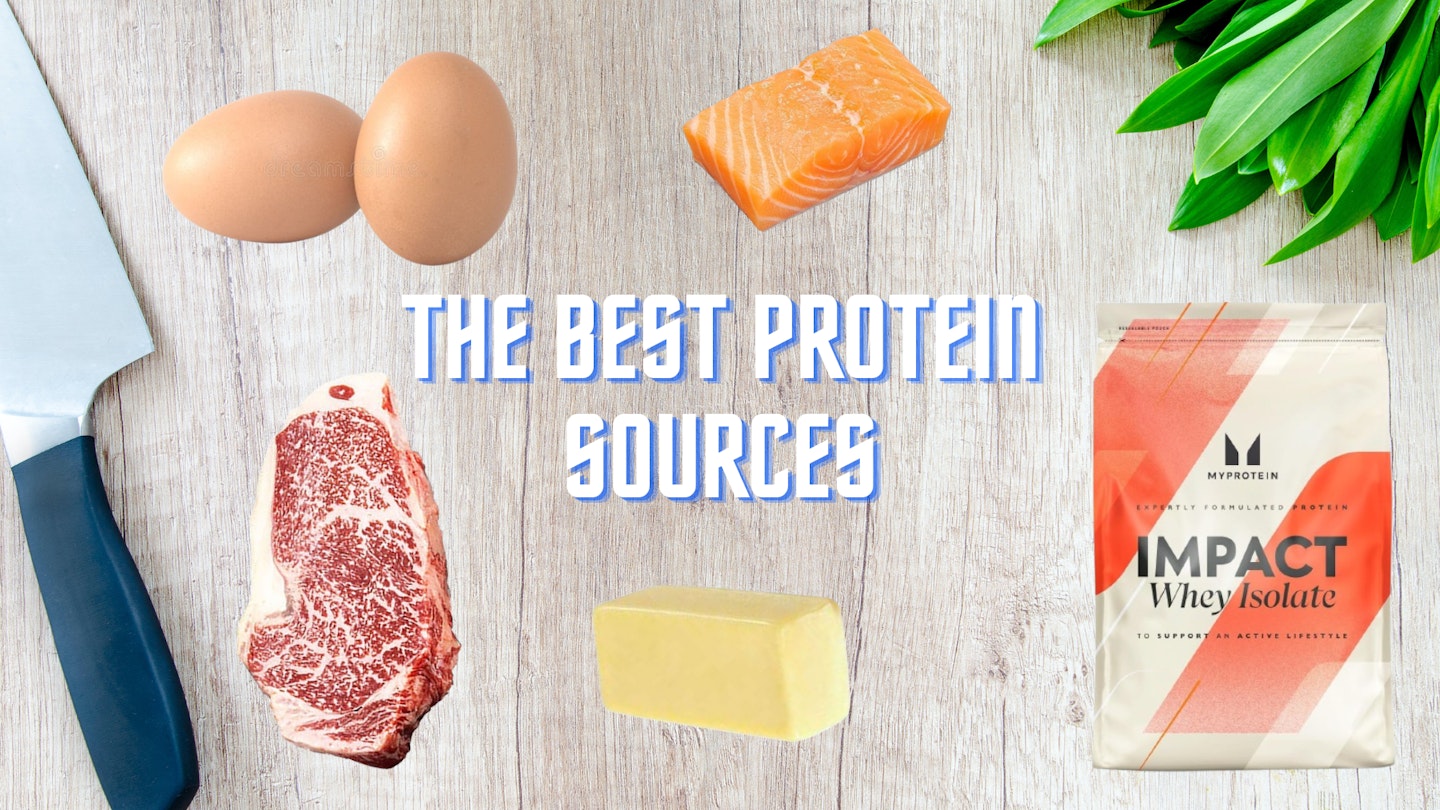Protein is one of the most important macronutrients you can give your body. It’s vital for muscle recovery, muscle growth and strength on the whole. There are a multitude of protein sources out there for you to sink your teeth into or slurp down in a gym supplement - you’re practically spoilt for choice.
There are plenty of reasons why some protein sources are better than others. The actual protein content per gram weight is the main indicator of whether something is a good source of protein or not. The protein-to-calorie ratio is an important factor too, this will be dependent on whether you have any specific weight loss or weight gain goals. For example, peanuts are widely considered a great protein source, but they are high in energy.
Additionally, you should consider how bioavailable a certain protein source is. What this means is how much protein your body will absorb from the food and how quickly. The better the bioavailability and the higher absorption rate, the better the protein source.
Here are some of the most effective protein sources that should be making it onto your weekly grocery list.

Lean meat
You probably expected this one, it is undeniably the best protein source after all. We do have to clear a few things up first, though. Lean meats are the way; try to steer clear from processed meat if you’re looking for the best protein sources.
Chicken, turkey, beef, pork, and lamb, they’re all terrific for protein content and have a super high absorption. The negative connotations that have been conjured up about red meats have been almost debunked entirely. Beef and other red meats have a high protein content and a high natural fat content, meaning when you eat red meat, you’re guaranteed to stay fuller for longer, and have more energy too.
Fish
Following on in the same fashion as meat, fish is an outstanding source of protein, especially if your goal is weight loss, too. Fish is exceptionally lean, meaning it’s high in protein while being very low in calories. Again, the less processed the fish is, the better a protein source it will be. As much as you might love fish fingers or battered cod, they are, unfortunately, less effective sources.
Eggs
Eggs are an absolute superfood, and they're one of the most bioavailable sources of protein you can put in your basket. Yes, you have to eat a considerable amount to match the protein content of, let’s say, a chicken breast, but eggs are so affordable.
Change how you see eggs; instead of an accessory to a meal with perhaps one or two on your plate, make them the main event. They’re filling and easy to prepare in a number of ways, such as scrambled, fried, poached or in an omelette.
You can also use egg whites to access the high protein content of eggs without the fats of the yolk. This way is s fitness favourite, as egg whites are all protein with zero carb and zero fat.
Protein Powder
High-absorption protein sources don’t come quite as good as effective as protein powder. It's a fine powder with a very high protein content that can be used in a shake or a selection high high-protein baking recipes.
There are so many kinds of great protein powders available, it can be tough to know which one to pick, so we’ll make it as simple as possible. If you want the best, you should look for anything that says Whey Isolate or Protein Isolate. The word isolate in reference to protein powder means the product is more refined. It is purer, so it has less added extras. The purer the protein powder, the faster the absorption rate, you guessed it - the better the protein source.

Protein powder is a great gym supplement and a great source of protein, it’s especially effective if you struggle to hit a daily protein intake from just your meals alone.
Cheese, milk, and other dairy products
There’s some serious protein to be gained from various dairy products. Most cheese is tremendously high in protein; it is, however, high in fat and thus calories. If you choose cheese as a protein source, it’s worth knowing how to fit it into your diet the right way.
Milk can be a decent protein source, too, it’s a great secondary when paired with protein powder to make a good old-fashioned protein shake.
You can find some yoghurts that are brilliant for protein, too. Greek-style yoghurt is a noteworthy example. You can also find a variety of protein yoghurts on the shelves, with some as high as 25 grams per lunch-sized pot.
Vegetarian and vegan protein sources
You might've noticed that many of the best protein sources are animal products, so as vegetarian or vegan, you may be wondering what your best protein sources might be.
Vegetarians can still rely on eggs, cheeses and countless other dairy products with a high protein content. A wide range of nuts are going to be your best friend, too.
As a vegan, nuts and legumes are good options too. You'll also mainly rely on vegetable proteins such as different high-protein peas and beans.
Vegetarians and vegans can find protein powders suitable for their dietary needs. There are plenty of vegan protein powders out there that taste great and are of course, high in protein.
Is protein powder good for you?
If you treat protein powder like a supplement, that is, and you incorporate it into an already healthy diet, it can certainly do you some good. It can be tricky to hit your protein intake from just food alone, especially if your budget is tight. A good tub of Whey Isolate Protein Powder can solve that dilemma.
Protein powder is easy for your body to absorb and can work wonders for muscle recovery.
Does protein make you gain weight?
No, there is no food or supplement that will make you inherently gain weight. The only instance that you will gain weight is by being in a calorie surplus, which is where you input more energy into your body than your body burns.
Protein will help you gain muscle mass, but again, you still need to be in a calorie surplus to gain muscle. A high protein diet, a calorie surplus, and consistent strength training are the recipe for gaining muscle.
Jack Barrell is a Tech and Fitness Writer for What’s the Best. He is invested in all things entertainment and keeps well up to date with the latest sports and exercise trends too. On his off days Jack can usually be found doing one of two things; lifting heavy weights – or watching his favourite Star Wars for the thousandth time.
